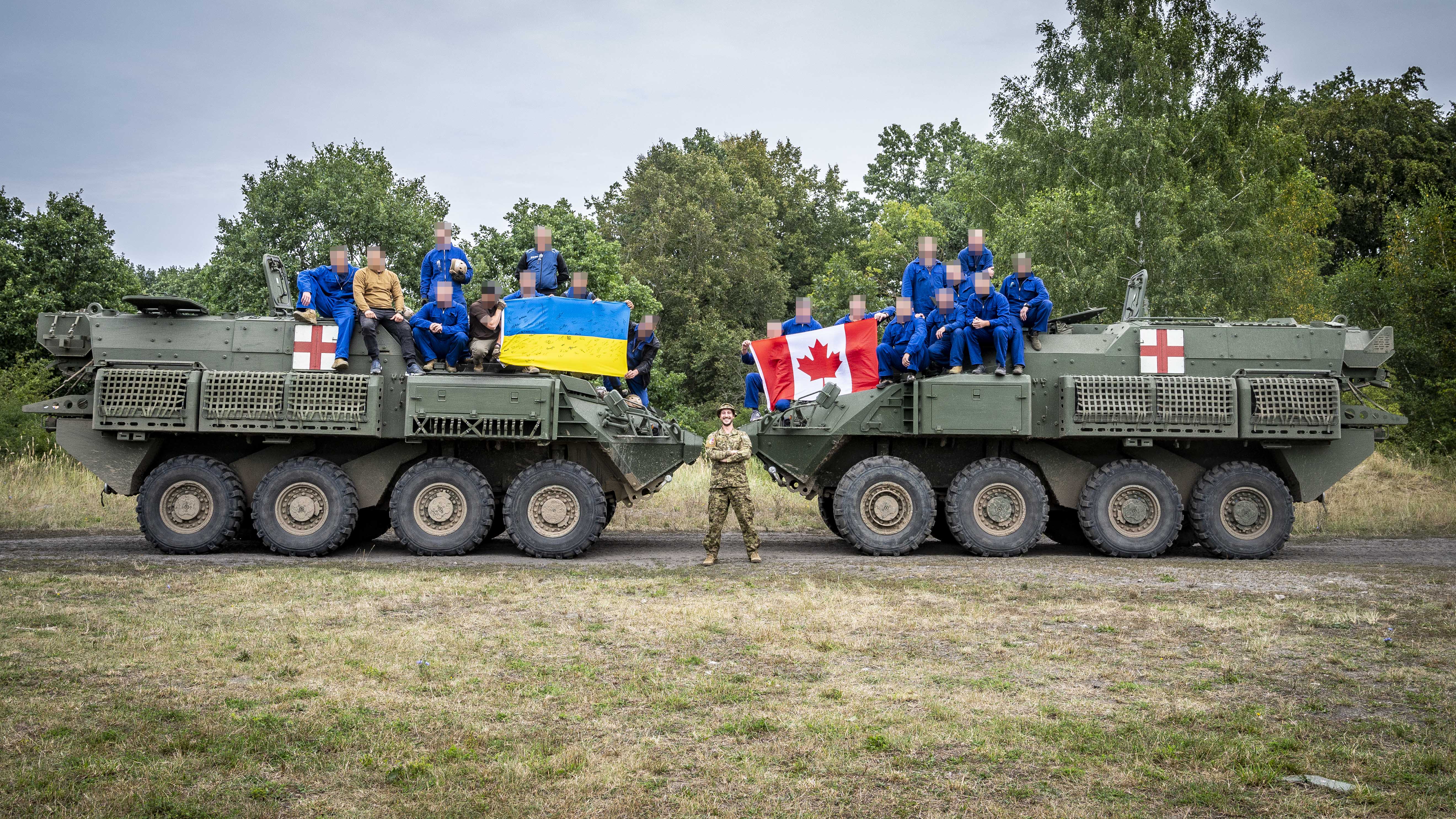We move mountains to make things happen
February 21, 2025 - Defence Stories
Estimated read time - 2:30

Caption
Armed Forces of Ukraine members get together for a group photo during Armoured Combat Support Vehicle training to prepare for the battle against the ongoing invasion into Ukraine by Russia, on Operation UNIFIER, in Germany, on 22 August, 2024. Photo by: Canadian Armed Forces Imagery Technician
In March 2022, the Department of National Defence (DND) established the Military Assistance Coordination Cell (MACC) in response to the Russian invasion of Ukraine. Initially a small “tiger team,” the MACC was tasked with coordinating critical military support for Ukraine.
Building the framework
Melissa Burke, Acting Director of the MACC, has been with the team since its inception. Reflecting on the early days, Burke recalls “scrambling to get whatever we could to Ukraine.” With short-term funding from the Canadian government, the team worked quickly to provide ammunition, armoured vehicles, and other critical equipment. As the mission expanded, the MACC transitioned to a full-time operation of 10-12 dedicated members, shifting from urgent short-term aid to longer-term strategic support.
Collaboration in crisis
Reflecting on the journey of the MACC, Burke credits the team’s success to the close collaboration of many internal and external partners, from subject matter experts to technical support staff.
A key success of the MACC has been its ability to build invaluable relationships with Canadian industry. Burke highlights the winter gear initiative as an example of effective collaboration with companies like Canadian Tire and Marks Work Warehouse to provide essential winter clothing and equipment to Ukraine. “There are Canadian companies holding back stock because they want to send it to Ukraine,” says Burke, underscoring their extraordinary commitment.
Overcoming challenges
As a result of a high demand for military resources worldwide, the team’s most significant obstacle has been the global scarcity of armaments. “There have been capabilities we wanted to provide, but we couldn’t source them,” Burke shares.
Despite these setbacks, the MACC is able to maintain a steady pace of operations and now focuses on long-term, steady support rather than the urgent scramble of the early days. “We’ve been operating on a war footing for years. It’s exhausting for the team, and it’s hard to maintain,” Burke says. Nevertheless, the team’s enthusiasm and dedication remain unwavering.
The future
Looking ahead, the role of the MACC will evolve as the conflict changes. Burke anticipates more collaboration with Ukrainian industry and fostering long-term partnerships to help build Ukraine’s defence capabilities. The MACC will also continue to support Ukraine’s defence reforms, working alongside other parts of DND to strengthen Ukraine’s military institutions.
The MACC’s success is a testament to the team’s dedication and resilience. Burke credits the work to the commitment of internal and external partners, including the leadership of Colonel (Ret.) Marcel McNicoll, the team’s original director whose guidance and expertise has been instrumental in the MACC’s accomplishments. “We move mountains to make things happen.”